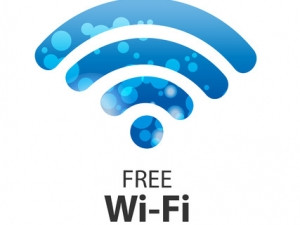
The global community could miss the 2020 UN Sustainable Development Goals target for affordable, universal Internet access, as high connectivity costs remain one of the biggest obstacles.
This is according to the 2017 Affordability Report compiled by the Alliance for Affordable Internet (A4AI), a global alliance of over 80-member organisations from across the public, private and not-for-profit sectors in both developed and developing countries.
"Sky-high connectivity costs remain one of the biggest obstacles to achieving the universal access pledge. To buy just 1GB of data in Africa, for example, costs an average citizen nearly 18% of their monthly income. Though broadband prices continue to fall, they simply aren't dropping fast enough. Meanwhile, high and growing income inequality in many countries conspires to ensure that only the relatively rich can afford a private Internet subscription, and public access solutions remain few and far between. A majority of countries are failing to take the action needed to drive prices down and enable access for all," said the organisation.
According to the report, the development and implementation of policies to support the expansion of public access particularly in Tshwane and Cape Town has upped the numbers of Internet users. SA has also been applauded as one of the countries which make effective use of universal service and access funds to support national broadband strategies and targets.
In 2013, the City of Tshwane launched its WiFi network to create free WiFi hotspots in the city. Since its inception, the Internet project has brought 1.8 million citizens in the capital city online, in the biggest deployment of municipal free WiFi on the African continent, with more than 700 WiFi zones deployed across the city's public spaces. Meanwhile, this year the City of Cape Town launched 72 public WiFi zones across various locations in the province, giving free Internet access to citizens.
The report furthermore looks at the policy frameworks in place across 58 low- and middle-income countries, including SA, to determine what changes countries have made to drive prices down and expand access and what areas they should focus on to enable affordable connectivity for all.
A method known as the Affordability Drivers Index (ADI) was used to assess the extent to which countries have implemented a number of factors that can lower the overall cost structure for broadband (affordability drivers). Each country is awarded a score (out of 100) across a range of variables within each grouping and is then ranked against the other countries in the ADI. Higher scores indicate the existence of a combination of factors which contribute to lower the cost structure for broadband provision and eventually lower prices.
South Africa was rated 21out of 58 countries with an access score of 61, infrastructure score of 39.8% and overall ADI score of 51.20%.
Despite the gradual increase, A4AI says despite the prediction that 50% of the world will be online by end 2017, there is a bigger concern about the other half that remains offline. "It is critical that countries also implement public access solutions to ensure that those at the base of the pyramid don't also remain relegated to the back of the connectivity queue," the company said.
Share